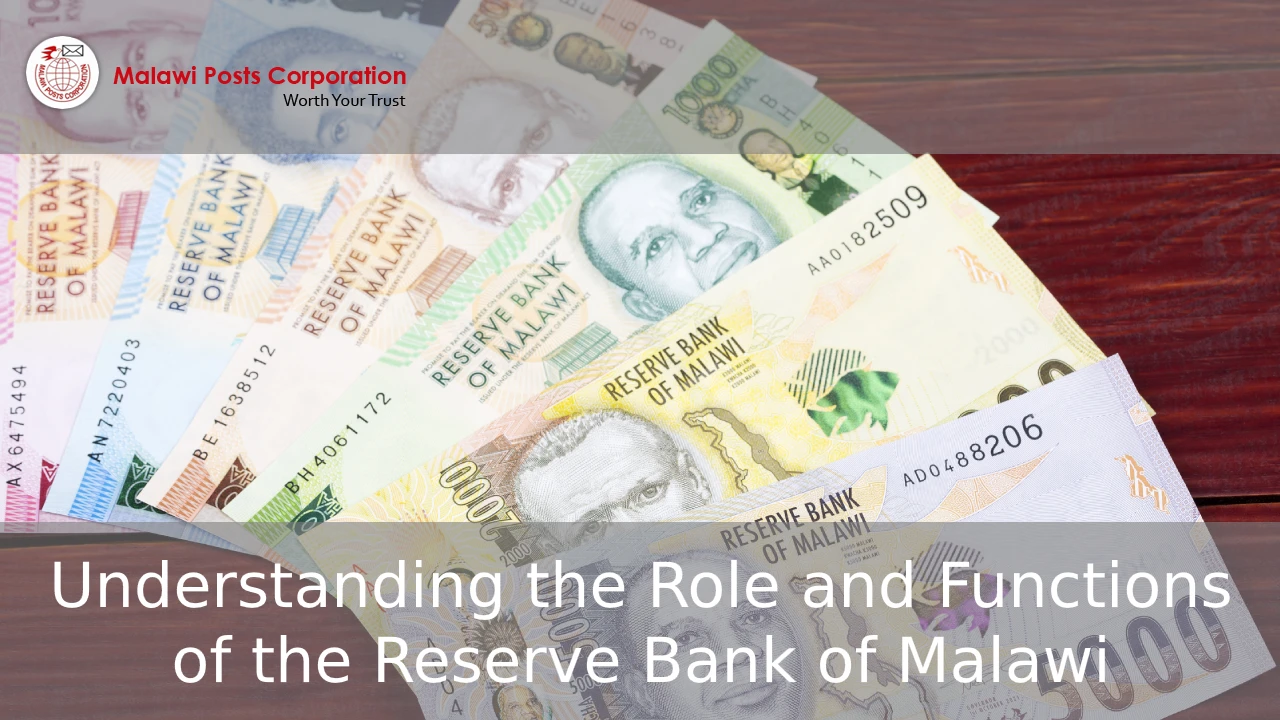The Reserve Bank of Malawi (RBM) plays a critical role in shaping the economic landscape of Malawi. Positioned as the country’s central bank, the RBM ensures monetary stability, regulates financial institutions, and fosters economic growth. For individuals, businesses, and policymakers alike, understanding its operations is essential to comprehending how Malawi’s economy functions.
What You’ll Learn
This blog outlines the core functions of the Reserve Bank of Malawi, its contributions to the nation’s development, and the impact it has on citizens and businesses.
What Is the Reserve Bank of Malawi?
The Reserve Bank of Malawi (RBM), established in 1964, is Malawi’s central bank. Its mission? To promote monetary stability and economic development by ensuring the smooth functioning of financial and payment systems while fostering consumer trust in the economy. It operates under the guidance of the Reserve Bank of Malawi Act, which establishes its mandate and independence.
The Core Functions of the Reserve Bank of Malawi
The RBM plays a multifaceted role in Malawi’s economic ecosystem. Below are its key functions:
1. Issuer of Currency
One of the most recognizable roles of the RBM is its exclusive authority to issue the Malawian Kwacha (MWK), the country’s legal tender. This responsibility ensures that the currency remains stable, adequately supplied, and trusted by the public.
By carefully monitoring money supply, the RBM safeguards the economy from inflationary pressures and ensures that the Malawian Kwacha serves as a reliable medium of exchange and store of value.
2. Conducting Monetary Policy
The Reserve Bank of Malawi is primarily tasked with regulating the country’s money supply and interest rates. Its main objective here is to maintain price stability while ensuring adequate liquidity in the economy.
Through tools such as adjusting the bank rate, open market operations (OMO), and reserve requirements for commercial banks, the RBM controls inflation and stabilizes the national currency.
Example in Action:
During periods of economic inflation, the RBM may increase interest rates to reduce consumer spending and slow price increases. Conversely, it can lower rates to stimulate borrowing and investment during economic slumps.
3. Supervising Financial Institutions
A key function of the RBM is its role as the regulator and supervisor of Malawi’s banking and financial institutions. It ensures that commercial banks, microfinance institutions, and other financial entities operate soundly and transparently while maintaining fair practices.
Through its Banking Supervision Directorate, the RBM ensures:
- Compliance with banking laws and regulations.
- Prevention of money laundering and fraud.
- Protection of depositors’ funds.
Its oversight builds trust within Malawi’s financial sector, encouraging more people to participate in the formal economy.
4. Managing Malawi’s Foreign Reserves
The Reserve Bank of Malawi is responsible for managing and maintaining the nation’s foreign exchange reserves. These reserves are critical for stabilizing the Malawian Kwacha and funding the nation’s international trade.
By effectively managing reserves, the RBM ensures that Malawi can:
- Pay for imports of essential goods like fuel and medicine.
- Repay foreign debt obligations.
- Intervene in the foreign exchange market to stabilize the currency during periods of volatility.
5. Acting as the Government’s Banker
Another significant function of the RBM is serving as the banker to the government. It manages the accounts of the Malawian government, processes its financial transactions, and implements its monetary policies.
In addition, the RBM controls public debt by issuing government bonds and securities. This enables the government to raise funds for development projects while managing the cost of borrowing.
The Reserve Bank of Malawi’s Role in Economic Growth
Beyond its core functions, the RBM acts as a key player in driving Malawi’s economic growth. Here are some ways it actively fosters development:
Supporting Financial Inclusion
The RBM works to increase access to banking services for underserved populations, including rural communities. By encouraging microfinance institutions and digital payment systems, it promotes economic empowerment and reduces financial inequality across the nation.
Promoting Stable Inflation
Economic growth thrives in a predictable environment. By keeping inflation at manageable levels, the RBM facilitates long-term planning and investment by businesses and individuals.
Encouraging Innovation in Banking
Through policies and partnerships, the RBM has encouraged the adoption of modern banking technologies, including mobile banking and digital payments. These innovations make banking more accessible and efficient, particularly in rural areas where traditional branches may be scarce.
Supporting Small and Medium Enterprises (SMEs)
The Reserve Bank’s strong regulatory framework ensures that credit facilities remain operational and accessible for small businesses. SMEs are the backbone of Malawi’s economy, contributing to job creation and GDP growth, and the RBM plays a role in creating an environment conducive to their success.
Challenges Faced by the Reserve Bank of Malawi
While the RBM plays an instrumental role in stabilizing and developing Malawi’s economy, it also encounters significant challenges. These include:
- Currency Depreciation: Frequent fluctuations in the value of the Kwacha against major foreign currencies can result in economic instability.
- Low Financial Literacy: Many Malawians lack awareness about formal banking channels, making it difficult to expand financial inclusion.
- Economic Shocks: External factors like fluctuating global commodity prices and climate-related agricultural shocks can stress the economy and disrupt the RBM’s plans.
- Limited Foreign Exchange Reserves: Managing adequate reserves to cater to debts, imports, and currency stabilization remains a delicate balancing act.
Why the Reserve Bank of Malawi Matters to You
Whether you’re a business owner, a policymaker, or a private individual, the actions of the RBM influence your daily life and financial decisions. From determining interest rates to promoting financial tools that reduce inequality, its policies shape the broader economic environment.
For instance, if you’re an entrepreneur, a stable economy and accessible financial services offer opportunities to grow your business. For consumers, the value of the Malawian Kwacha directly affects the cost of goods and services you purchase.
Building a Stable and Inclusive Future
The Reserve Bank of Malawi continues to evolve with the goal of fostering sustainable economic growth while addressing the challenges facing the nation. Its focus on financial inclusion, technological innovation, and macroeconomic stability provides a roadmap for reforms that benefit every Malawian.
To stay informed about the RBM’s policies and how they impact your financial future, consider following their official updates and attending community financial literacy events hosted by partner organizations.



